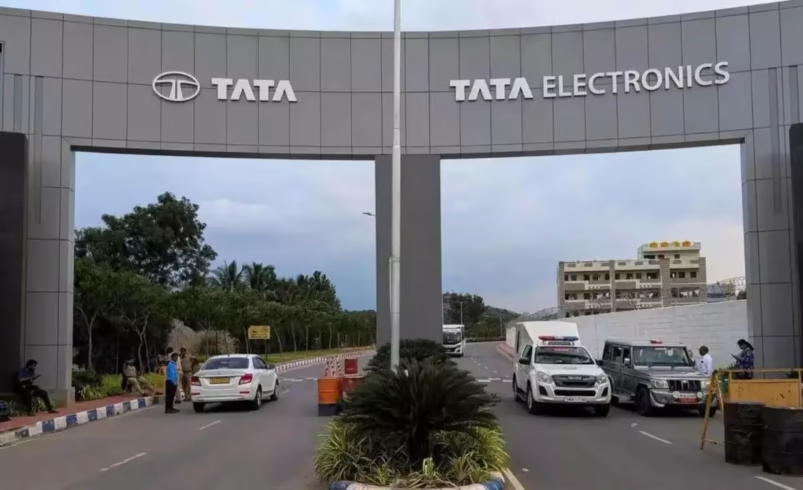Tata’s Assam Chip Plant Faces Wildlife Challenges
- September 12, 2025
- 0

Tata Electronics is tackling unique challenges as it constructs a new chip assembly plant in Assam. The company is building an “Elephant-Proof” wall to protect the facility from ground vibrations caused by elephants, which could interfere with the precision needed for semiconductor manufacturing. Additionally, a dedicated team is addressing the presence of snakes on the site, ensuring safety and smooth operations.
Tata Electronics’ ambitious project in Assam is not just about cutting-edge technology but also about coexisting with nature. The region, known for its rich biodiversity, presents unique challenges for the construction of a semiconductor plant. Elephants, which are native to the area, pose a significant risk due to their potential to cause ground vibrations that could disrupt the delicate processes involved in chip manufacturing.
To mitigate these risks, Tata Electronics is constructing a robust barrier designed specifically to withstand the force of elephants. This “Elephant-Proof” wall is a critical component of the project, ensuring that the precision required for semiconductor production is not compromised by external disturbances. The wall represents a significant investment in both technology and environmental stewardship.
In addition to elephants, snakes have been identified as another wildlife concern at the site. Tata has assembled a dedicated rescue team tasked with managing and relocating snakes safely away from the construction area. This proactive approach not only ensures the safety of workers but also demonstrates Tata’s commitment to preserving local wildlife.
The challenges faced by Tata Electronics highlight the broader issue of balancing technological advancement with environmental conservation. As industries expand into ecologically sensitive areas, companies must adopt innovative solutions to minimize their impact on local ecosystems. Tata’s efforts in Assam serve as a model for how businesses can responsibly integrate into natural landscapes.
The strategies employed by Tata Electronics could set a precedent for future industrial projects in similar environments. By prioritizing both technological needs and ecological considerations, companies can foster sustainable development that benefits both industry and nature. This approach may become increasingly important as global demand for semiconductors continues to rise.